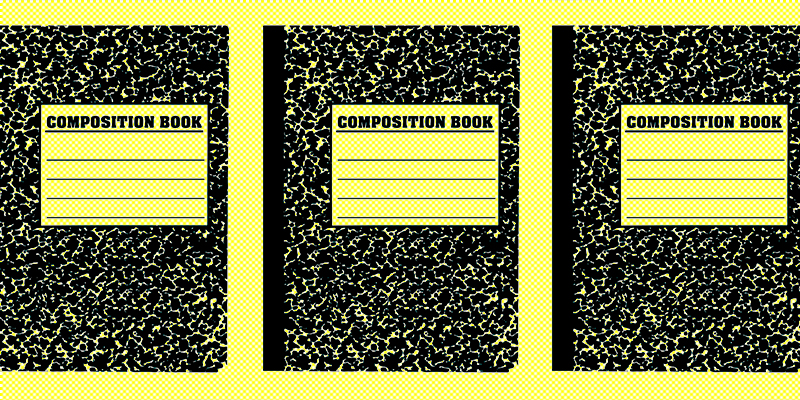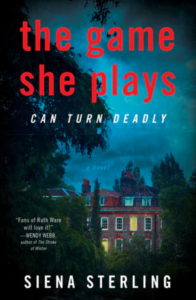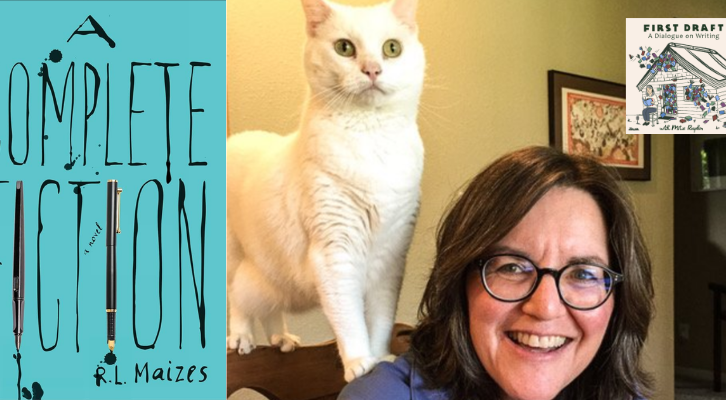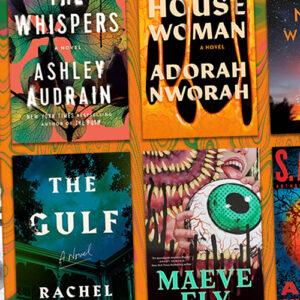It was 1962, I was in fourth grade, and my teacher Miss Houghton was not the nurturing type. She would sit behind her desk, glaring at her class of ten-year-olds with contempt and disdain. When she was particularly annoyed, she’d throw a pint-sized statue of the Empire State Building against the wall.
Every morning when we came into class there was a name chalked on the blackboard, with the words See Me beside it. After class the designated target would have to go “see” her and be told off in front of everyone for inattention or tardiness or whatever sin they had committed.
One day our homework assignment was to write a story—on any topic.
I decided to write about a Russian astronaut landing on my lawn: the two of us had a picnic lunch and discussed what it was like to see earth from space. Proud of my effort, I handed it in Miss Houghton.
When I came into class the next morning, I saw my name on the blackboard alongside the dreaded See Me.
I was a shy goody-goody. I’d never had a See Me before. When the time came to face her, I was terrified. She stood up, waved my story in front of me. “You didn’t write this.”
“But I did write it.”
“You’re lying. I know you didn’t. One of your sisters did. Which one? Diana or Rosie?” Both had been in her class previously.
“Di didn’t write it, Rosie didn’t either. I wrote it, I promise.”
“You couldn’t have written it. You’re a liar.”
She handed me the paper, which was marked at the top with a giant capital F, circled in red pen. And underneath the F she had written in big capital letters, PLAGIARIST.
“You’re not only a liar, you’re a plagiarist. Look it up when you get home.”
I did look it up. My sister Diana was seventeen at the time, Rosie was twenty-two. By insisting I had written something way beyond my years, Miss Houghton had given me a huge compliment, but it was a compliment wrapped in such condemnation that I couldn’t acknowledge it. Instead, I was swamped by shame and guilt for a crime I hadn’t committed.
I should have made my sisters come into school and defend me. Instead, from that moment on, when I wrote an essay of any kind, I was paranoid about accidentally stealing someone else’s words. The upside of this was that I worked much harder and thought more deeply about what I was writing and how to write it originally. That was helpful when it came to non-fiction, but when I ventured into fiction, I panicked, fearing that I might be stealing from the latest book I’d read, mimicking the author’s style.
In The Writer’s Voice, Al Alvarez says, “For a writer, voice is a problem that never lets you go, and I have thought about it for as long as I can remember – if for no other reason than that a writer doesn’t properly begin until he has a voice of his own.”
I have always loved writing; I knew there were stories I wanted to tell, but how could I find my voice, one that no one could claim was someone else’s?
All writers are influenced by other writers. It’s hard to read Hemingway and not try to recreate those short, concise sentences. But the difference between being influenced and being a copycat was, for me, a subtle and potentially dangerous one. As a result, I’d write stories and never show them to anyone else.
Working in a bookstore in my twenties, I came across a book called Letters I Never Mailed by a songwriter named Alec Wilder. After reading it, I began to write long letters to friends and family. When I signed my name, I knew no one else could have written that letter and after a while I did actually mail them. The PLAGIARIST curse began to lift.
The concept of plagiarism, though, has taken a complicated turn in recent months. Last week I was listening to an episode of a podcast called “Conversations with Tyler,” in which the host interviewed Gulliver’s Travels author Jonathan Swift. Swift died in 1745, but the podcast host was able to employ ChatGPT to answer questions as Swift would have in the early 18th century. Swift’s voice was robotic but his answers were entirely plausible.
The podcast both intrigued and horrified me. If it was possible to interview a dead author, wouldn’t it also be possible to take a further step and order up a book in any writer’s style? I could decide I wanted to read a thriller mixing Harlan Coben and Gillian Flynn, then plug my request into ChatGPT and wait for the magic to happen. At which point I could claim the blockbuster as my own—a high-tech form of plagiarism that could make human authors obsolete.
But I don’t believe that individual creativity can be wholly hijacked by high-tech progress. That blockbuster wouldn’t be mine. I’d be able to skip the long hours at my computer, the longer hours doing re-writes, and the constant ‘is this any good at all?’ moments, but I wouldn’t be able to claim it for myself. That has to be what counts.
A Writer’s Voice ends with: “It is the business of writers to create as true a voice as they can—if only to show themselves that it can be done, and in the hope that someone out there is listening.”
If not for Miss Houghton, I doubt I would have been so keen to find my voice or become a writer. For years I’d had a secret vendetta against my fourth-grade teacher, determined to prove her undeniably wrong. If she were still alive, I would send her a copy of my first published novel with a note that said, “See Me.”
***


















